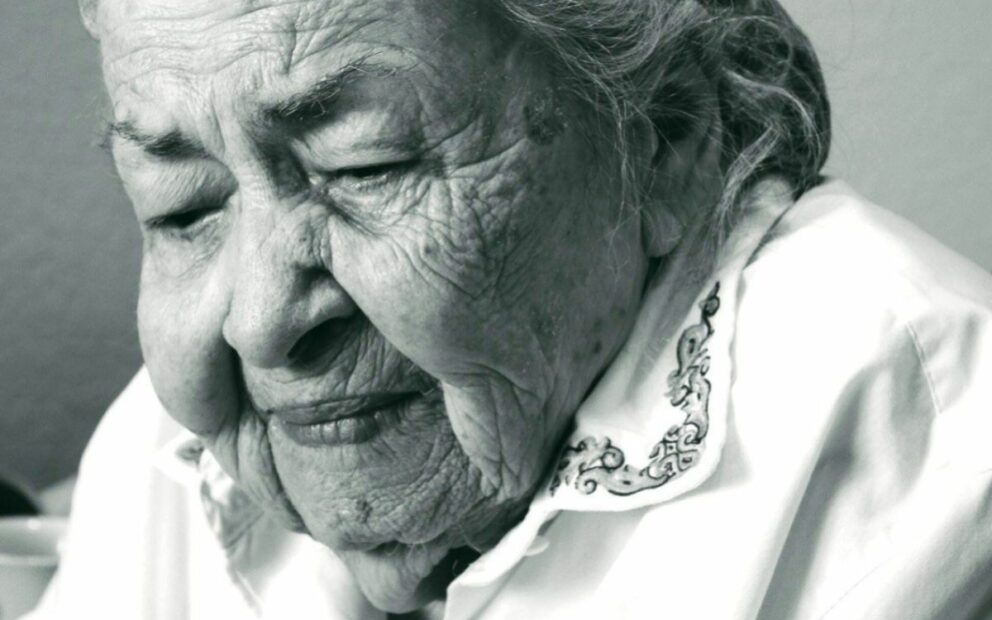100-year-old resident fights improper eviction

Sophia Grujin moved from Cincinnati to be closer to her daughter Vera. She was 90 years-old, so the move was a big adjustment. After three years of trying to find a suitable place, Sophia settled into an assisted living facility and lived there for seven years.
Notice of Eviction from Assisted Living Facility
In April of 2017, Vera received a voice mail from her mother’s caseworker telling her that Sophia, who was on economic assistance, might have to move.
“That call was so bizarre,” Vera says. “I called back and said, ‘What on earth are you talking about?’ My mother’s caseworker said the care facility felt they could no longer care for her.”
Vera, who had been unaware of any problems, was shocked. She and Sophia asked for a meeting as soon as possible with the nurse practitioner and social worker. In the middle of the meeting, the door opened, and the Resident Social Worker and Director of Nursing joined the meeting.
“We were ambushed,” says Vera. “I thought we were brainstorming solutions. I had no idea the decision had already been made. Those two women stood over my mother, who is a tiny lady, and put her through the wringer. They were so cruel.”
The administrators challenged Sophia on a number of issues, saying things like, “Go on, prove to us that you can get a glass of water without help.” They said she’d broken the rules by asking staff to take the cellophane off a pill bottle and open a package. Sophia’s mind is sharp and clear, and she was unaware of any such rule. She replied that each time staff had volunteered to help.
When Vera demanded that they stop haranguing Sophia, the social worker handed over an eviction notice and a letter saying that services would stop in just a few days. If Sophia stayed in the apartment, no one would help to care for her.
At 100 years old, Sophia was being evicted with less than 30 days’ notice.
“How was I to find a place for her with an eviction on her record?” says Vera. “They dumped us in the street, and I was completely lost.”
Legal Intervention Saves the Day
Vera, pressed for time and overwhelmed, called the ombudsman, who referred her to Legal Aid’s Senior Law Project. Staff Attorney Gordon Solo took the case, much to Vera’s relief.
“Once a lawyer steps in, the dynamics change,” says Solo. “The management agreed not to file an eviction, and to give Sophia and Vera six extra days without rent to move Sophia’s belongings and clean the apartment. They also returned the full deposit.”
Sophia’s situation is not an unusual one. The Senior Law Project sees situations like this time and again. They know which facilities are frequent offenders.
“The case wasn’t complicated,” says Solo. “The facility gave improper notice, and their grounds for termination were ridiculous. Most facilities want to avoid litigation. They may go after someone who is vulnerable, but they back off once a lawyer is involved.”
“You think you’re safe,” says Vera. “But this can happen to anyone. My mother is 100 years old, and that meeting was one of the ugliest examples of humanity I’ve ever witnessed. It looked like they were terminating everyone who uses a wheelchair.”
Sophia and Vera considered bringing a lawsuit, but decided against it. Without an eviction on Sophia’s record, Vera was able to find a new facility that was a good fit. The extra six days gave her time to complete the move. The entire experience and transition were so difficult, Sophia and Vera preferred to leave the conflict and unpleasantness behind.
“I am grateful to everyone at Legal Aid who helped make my move smoother,” says Sophia, who appreciates the more relaxed atmosphere and better staffing ratios in the new place.
Helping Seniors Avoid Litigation
“It was a good result,” says Solo. “Sophia avoided the stress of staying in a hostile environment with extra costs. Most of our elderly clients don’t need or want the stress of litigation. My job is to find out what the client wants and needs, and get it for them.”

